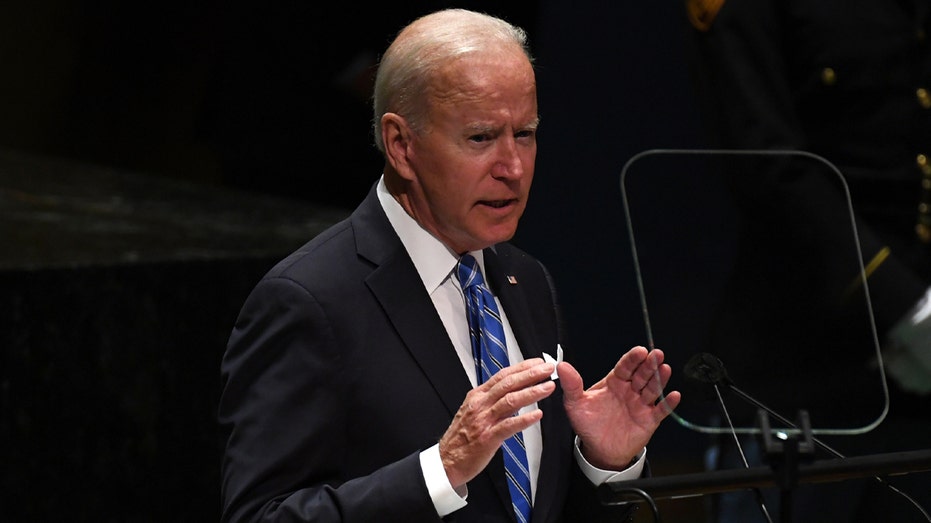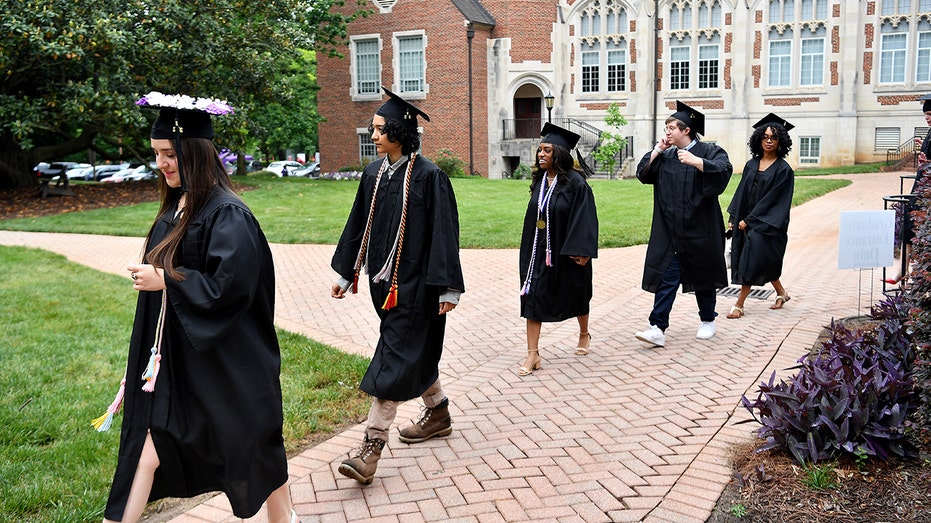Student loan deal could cost $900B and favor top earners, analysis shows
Penn Wharton: Majority of student loan debt forgiven would boost top earners
Forgiving more student loans is 'incredibly costly, highly disappointing': Economy expert
Maya MacGuineas, president of the bipartisan Committee for a Responsible Federal Budget, says Biden's promises of caring about a fiscal future 'fall flat.'
Forgiving student loan debt could cost upward of $900 billion and disproportionately benefit wealthy Americans, according to a new analysis published on Tuesday.
The findings from the Penn Wharton Budget Model, a nonpartisan group at the University of Pennsylvania's Wharton School, come as President Biden announced that he will cancel $10,000 of federal student loan debt for certain borrowers earning less than $125,000, and $20,000 for Pell Grant recipients.
Penn Wharton estimated that a one-time forgiveness of $10,000 per borrower would cost about $300 billion if the policy is limited to individuals with incomes less than $125,000. The cost jumps to $330 billion if the program continues over the next decade and would cost $344 billion if the White House scrapped the income limits. Should Biden opt to wipe out $50,000 per borrower, it would cost the federal government roughly $980 billion, according to the analysis.
Canceling debt would also add to the nation's already ballooning national debt, which surged to a record-high $30 trillion last year.
Between 69% and 73% of any debt forgiven would accrue to households that are in the top 60% of income distribution in the U.S.
LARRY SUMMERS WARNS STUDENT LOAN DEBT RELIEF COULD WORSEN INFLATION

U.S. President Joe Biden addresses the 76th Session of the U.N. General Assembly on Sept. 21, 2021 at the U.N. headquarters in New York City. ((Photo by Timothy A. Clary-Pool/Getty Images) / Getty Images)
The White House has weighed for months whether to cancel some federal student loan debt. Biden campaigned on erasing at least $10,000 in student loan debt for most borrowers and has since floated income-based parameters that would cut off forgiveness for any household earning more than $125,000.
However, the matter has been complicated further by the soaring prices of everything from food to gasoline to rent, with fears that wiping out billions in loan debt could exacerbate the inflation crisis.
Critics, including former Treasury Secretary Larry Summers, have argued that putting more money back into borrowers' pockets could keep inflation painfully high in the coming months and years.
IS THE UNITED STATES ENTERING A RECESSION?
"I hope the Administration does not contribute to inflation macro economically by offering unreasonably generous student loan relief or micro economically by encouraging college tuition increases," Summers, a Harvard University professor, wrote in a series of tweets this week.
Biden also announced on Wednesday tha he intends to extend the federal student loan payment pause that was poised to expire at the end of August. The freeze — which also set the interest rate to 0% — began in March 2020 at the onset of the coronavirus pandemic.

Agnes College graduates participate in 2022 Agnes College Commencement at Agnes Scott College on May 14, 2022 in Decatur, Georgia. ((Photo by Paras Griffin/Getty Images) / Getty Images)
About 41 million Americans are benefiting from the federal government’s pause on student loan payments, which has been extended six times — twice by former President Trump and four times by Biden. At least $72 billion has been provided in relief on student loan interest alone.





















